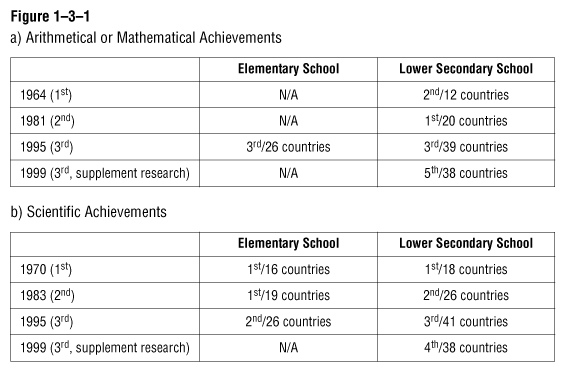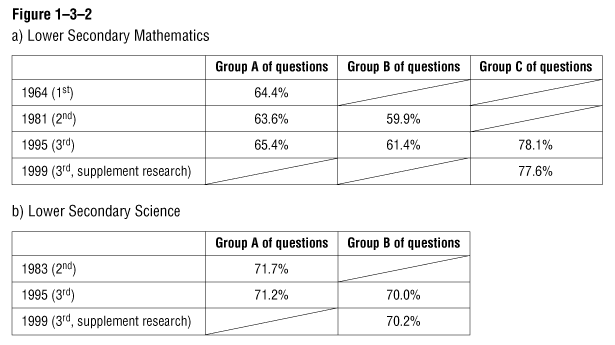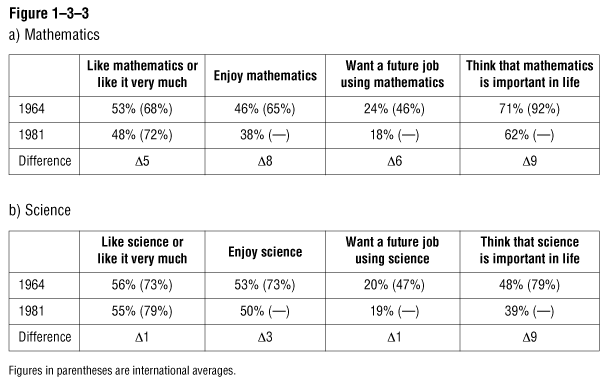| Home > Policy > White Paper, Notice, Announcement > White Paper > Japanese Government Policies in Education, Culture, Sports, Science and Technology 2001 >Chapter3 Section1.2 | ||
According to international research that has been conducted by the International Association for the Evaluation of Educational Achievement (IEA) on mathematics and science education, Japanese children have high levels of skills and knowledge compared internationally.

In comparison with past research, there is no sign of a significant decline in the percentage of correct answers on lower secondary mathematics and science questions.
These findings indicate that the academic achievement of Japanese children has generally been good throughout the postwar era.
However, some point out problems concerning students' attitude toward mathematics and science. That is, the percentage of students who like mathematics and science, or who want to pursue a job using mathematics and science is relatively low compared to students in other countries.


| Back To Top | MEXT HOME |